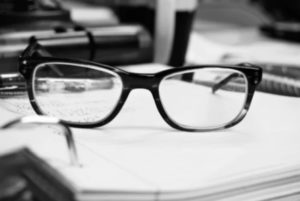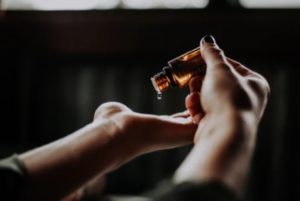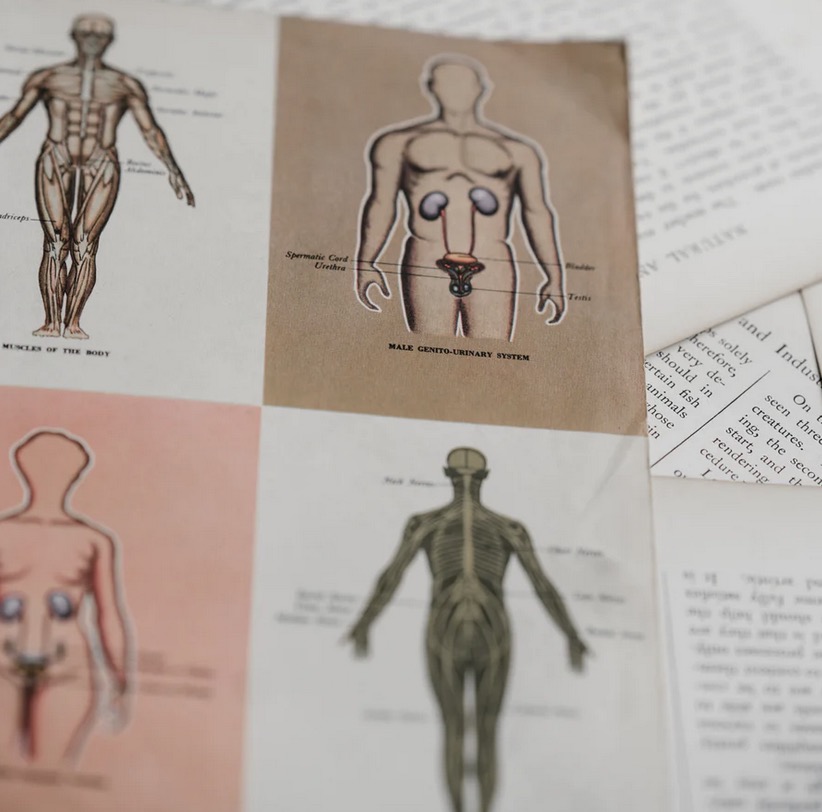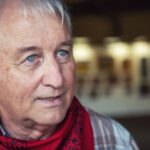Non-medical practitioners exist in Germany since the beginning of the twentieth century. In the first paragraph of the 1939 issued Heilpraktikergesetzes the name is defined in more detail.
- So it stands for all those who professionally or professionally practice the so-called medicine, without being a certified doctor or psychological psychotherapist.
However, not everyone is allowed to call themselves a naturopath or non-medical practitioner, because the practice of medicine under this professional title requires a state permit. This also results in a tax liability for all practicing naturopaths who belong to the liberal professions according to Paragraph 18 of the Income Tax Act.
We would like to take a closer look at the work of naturopaths in Germany, and at the same time also address their historical significance.
ÜBERSICHT
About the Work of Naturopaths
 According to the Federal Statistical Office, there are currently around 47,000 naturopaths in full and part-time employment practices in Germany. A large proportion of the naturopaths organize themselves in nationwide associations that represent their interests. The majority of them are represented by the Dachverband Deutscher Heilpraktikerverband (DDH) in questions of professional, medical and professional politics. Individual associations usually also offer continuing education and training and train new naturopaths at their own schools until the state grant of the healing permit.
According to the Federal Statistical Office, there are currently around 47,000 naturopaths in full and part-time employment practices in Germany. A large proportion of the naturopaths organize themselves in nationwide associations that represent their interests. The majority of them are represented by the Dachverband Deutscher Heilpraktikerverband (DDH) in questions of professional, medical and professional politics. Individual associations usually also offer continuing education and training and train new naturopaths at their own schools until the state grant of the healing permit.
Even if naturopaths, unlike doctors or psychotherapists, do not need any license to practice medicine, only those who have the corresponding permission to do so may call themselves naturopaths. This healing permit requires first passing through a legally regulated medical examination by the responsible health department, which requires the expertise of future naturopaths.
In addition to conventional naturopaths, other occupational profiles have been delineated over time that can also be attributed to the health professions: the so-called sectoral non-medical practitioners. Since 1993, there are also naturopaths limited to the field of psychotherapy. In 2009, another health profession was added nationwide: the sectoral naturopaths for physiotherapy.
Both subgroups are limited to their respective subject area. Treatment methods that go beyond this are reserved for naturopaths with full healing permission. And even these, in contrast to doctors and psychological psychotherapists, are subject to certain limitations.
Differences to Doctors and Psychotherapists
Naturopaths, for example, may not prescribe any prescription drugs, nor may they prescribe hospital admissions or sociotherapies – to name but a few. Self-explanatory, a naturopath may not wear a protected professional title such as a doctor or psychotherapist. Another difference to the professional group of doctors and psychological psychotherapists is that the naturopath can not settle their benefits through the statutory health insurance.
Admission Requirements
 The German Heilpraktikergesetz regulates all legal conditions for the practice of the profession. Although there is no firmly prescribed training in Germany, but the final examination or admission test for naturopaths is well regulated by the state. This is divided into a written and an oral part. For the execution of the oral exam, the state commissioned the associated health department. The prerequisite for admission is that both exams have passed successfully. This is in the first paragraph of the first paragraph of the Heilpraktikergesetzes (short: HeilprG) regulated. For the granting of the healing permission is ultimately the responsible Land authority responsible, which in turn must be based on the state implementing regulations.
The German Heilpraktikergesetz regulates all legal conditions for the practice of the profession. Although there is no firmly prescribed training in Germany, but the final examination or admission test for naturopaths is well regulated by the state. This is divided into a written and an oral part. For the execution of the oral exam, the state commissioned the associated health department. The prerequisite for admission is that both exams have passed successfully. This is in the first paragraph of the first paragraph of the Heilpraktikergesetzes (short: HeilprG) regulated. For the granting of the healing permission is ultimately the responsible Land authority responsible, which in turn must be based on the state implementing regulations.
Other prerequisites for granting a license include a minimum age of 25 years, an existing secondary school certificate and health suitability for the planned activity. Also, the so-called „moral reliability“ must be certified by a police certificate of good conduct. In detail, the basic requirements in the implementing ordinance of the Heilpraktikergesetzes, the HeilprGDV 1 are discussed. Their entirety of conditions is intended to ensure that there is no evidence that future medical work could possibly cause damage to human health. In this context, there is always talk of a safety check.
Naturopaths Examination
In the naturopathic exam, inter alia, anatomical, physiological and pathophysiological knowledge is queried. The recognition and differentiation of common diseases is one of the main topics. Here, special emphasis is placed on cardiovascular and metabolic diseases as well as on communicable and degenerative diseases. There are also contents from the pathology and psychopathology of humans. Also disinfection, sterilization and general practice hygiene are inquired. Listing all the main topics of the exam here would actually go beyond the scope of this article.
Even though there is no training required before the exam, it seems more than sensible to cross it, given the size and complexity of the topics being asked. Not without reason, the average length of private training institutions is between one and three years.
An exemption applies to psychologists who already have a diploma or master’s degree. Would you like to obtain permission for sectoral activity in the field of psychotherapy, a simplified procedure is sufficient if certain conditions are met. That means there is no need to take a separate exam.
Heilpraktikergesetz
 The Heilpraktikergesetz in Germany, the so-called law on the professional practice of medicine without ordering, is unique in its form worldwide. This means that outside Germany (with the exception of the German-speaking countries Austria and Switzerland) there are no naturopaths, at least in the legal sense. Despite the agreement on the European recognition of vocational training, the profile of naturopaths in other European countries is still not officially recognized. Above all, this makes one question louder: how did it even happen that the naturopath in Germany established himself as a job profile?
The Heilpraktikergesetz in Germany, the so-called law on the professional practice of medicine without ordering, is unique in its form worldwide. This means that outside Germany (with the exception of the German-speaking countries Austria and Switzerland) there are no naturopaths, at least in the legal sense. Despite the agreement on the European recognition of vocational training, the profile of naturopaths in other European countries is still not officially recognized. Above all, this makes one question louder: how did it even happen that the naturopath in Germany established himself as a job profile?
Development of the Nazi period until today
 While lay medicine dates back to deep into the Middle Ages, only the „law on the professional practice of medicine without ordering“, which was passed on February 17, 1939, should become the actual foundation stone of the medical practice in Germany. The law adopted by the then NS legislature is still valid today, albeit in a modified form, as Heilpraktikergesetz (HeilprG). This law should actually ensure that the naturopath would soon belong to history as a dying profession. From now on, training with him at a school for naturopaths was prohibited and thus the official end of the hitherto prevailing courier freedom was ushered in.
While lay medicine dates back to deep into the Middle Ages, only the „law on the professional practice of medicine without ordering“, which was passed on February 17, 1939, should become the actual foundation stone of the medical practice in Germany. The law adopted by the then NS legislature is still valid today, albeit in a modified form, as Heilpraktikergesetz (HeilprG). This law should actually ensure that the naturopath would soon belong to history as a dying profession. From now on, training with him at a school for naturopaths was prohibited and thus the official end of the hitherto prevailing courier freedom was ushered in.
The main trigger for the adoption of the Heilpraktikergesetzes should have been the criticism of Reich Medical Leader Gerhard Wagner, who in 1937 had called courier freedom and National Socialism as incompatible. Due to his criticism, the first draft of the new law was introduced in 1938, which came into force one year later.
Only 20 years later, the Federal Administrative Court ruled in a ruling of January 24, 1957, that the „professional ban“ under § 1 para. 1 of the 1st DVO was not compatible with the applicable Basic Law and therefore declared it void. Another relic from the Nazi regime had already been repealed on September 20, 1945: the racist prohibition laid down in § 2 (1) (b) HeilprGDV 1 to grant Non Germans a naturopath permit.
Except for these changes, the Heilpraktikergesetz remained almost unchanged in its now 80 years of existence, which makes critics‘ voices louder and louder. Most recently, the 2016 HeilprG was adjusted, but the changes were mainly limited to the adaptation of the review guidelines, to the effect that the examination should now be nationally uniform.
Confidentiality and the right to refuse to give evidence by non-medical practitioners
Since naturopaths are not psychotherapists, professional psychologists or physicians to the catalog professions under § 203 StGB , they are not bound by the obligation of confidentiality (as the secrecy is called in the sense of the law).
Even if non-medical practitioners are at least legally not subject to any professional regulations, the six large non-medical practitioner associations have already agreed in 1992 on a common „professional code for non-medical practitioners“ (abbreviated to BOH), which also includes a confidentiality obligation.
If a naturopath violates the obligation of secrecy imposed by the concluded treatment contract, he may under some circumstances pay the patient for compensation for pain or damage. If necessary, he can also be prosecuted for it. In addition, violations of confidentiality can be cautioned by the respective association and sanctioned by means of the professional code.
In the case of requests for information from courts, public prosecutor’s offices or other authorized authorities, however, the naturopath can not invoke the obligation of confidentiality; he is usually required to provide information.
Fee and billing
 Naturally, naturopaths determine their fees as far as possible themselves. Thus, § 630a BGB provides that patient and naturopath make a free agreement on the amount of compensation. This is also part of the treatment contract. Originally, the fee schedule for naturopaths (GebüH) was used to determine the fee. However, since this has not been updated for several decades, the prices noted therein are now only of little use. The GebüH is therefore only used by a few naturopaths. In economic practice, the maximum rates of the fee schedule must be exceeded. Frequently, this is also based on the fee schedule for doctors (GOÄ). Since the GebüH the legal force of a statutory fee regulation is missing, it is criticized again and again, since it could represent in theory an antitrust forbidden price agreement.
Naturally, naturopaths determine their fees as far as possible themselves. Thus, § 630a BGB provides that patient and naturopath make a free agreement on the amount of compensation. This is also part of the treatment contract. Originally, the fee schedule for naturopaths (GebüH) was used to determine the fee. However, since this has not been updated for several decades, the prices noted therein are now only of little use. The GebüH is therefore only used by a few naturopaths. In economic practice, the maximum rates of the fee schedule must be exceeded. Frequently, this is also based on the fee schedule for doctors (GOÄ). Since the GebüH the legal force of a statutory fee regulation is missing, it is criticized again and again, since it could represent in theory an antitrust forbidden price agreement.
Reimbursement by the Health Insurance
With the statutory health insurance companies (short: GKV) the assumption of costs for naturopaths is generally not possible. This means that usually the legally insured patient pays the bill for the treatment by a naturopath himself. A naturopath can not write prescriptions for billing with a public health insurance, which is due to the fact that he may prescribe only prescription drugs, the again since the health care reform 2003 no longer be taken over by the health insurance. This includes most homeopathic remedies and means of plant therapy.
For most statutory health insurance companies, however, it has been possible since 2005 to take out voluntary supplementary insurance, which also covers certain naturopath benefits. These supplementary insurance policies are usually settled through private insurance partners.
Privately insured and eligible patients are more likely to pay. With some exceptions, most services provided by a naturopath will be reimbursed to you. In order to be sure which treatment procedures are actually reimbursed by the aid or private health insurance, it is worthwhile to first contact the insurance provider. In addition, the reimbursement of the cost bearer usually also according to the fee schedule (GebüH).
Heilmittelwerbegesetz
 The so-called Heilmittelwerbegesetz (Remedies Advertising Act), in short HWG, extends in its validity widely across the entire health sector. Since the naturopath also works in this sector, he is subject to the provisions of the HWG just like other professions in the industry. The purpose of the Advertising Act is to protect consumers. It determines all the regulations for the advertising of medical products, medicines and medicines. Especially for naturopaths, this law plays a particularly important role, since many methods are not scientifically recognized within alternative medicine. For example, it is forbidden to postulate an effect on individual treatment methods that has not previously been proven.
The so-called Heilmittelwerbegesetz (Remedies Advertising Act), in short HWG, extends in its validity widely across the entire health sector. Since the naturopath also works in this sector, he is subject to the provisions of the HWG just like other professions in the industry. The purpose of the Advertising Act is to protect consumers. It determines all the regulations for the advertising of medical products, medicines and medicines. Especially for naturopaths, this law plays a particularly important role, since many methods are not scientifically recognized within alternative medicine. For example, it is forbidden to postulate an effect on individual treatment methods that has not previously been proven.
Due to the strict regulations, it is not always easy for a naturopath to advertise. On the one hand, it has to fulfill its purpose – namely, educate about the treatment methods and arouse the interest of the patient – but on the other hand, it must not be too effective, so that the protection of the patient in the sense of the HWG is under no circumstances endangered.
Treatment Methods
There are a variety of alternative medical treatments that are used in the treatment by naturopaths. It should be noted that naturopaths with full admission are allowed to treat both physical and mental (mental) suffering, whereas sectoral naturopaths are restricted to their respective field of expertise, ie either physiology or psychology.
Apart from these regulations, however, the freedom of therapy applies to every naturopath. Naturopathscan therefore use all the treatments they can do. Both traditional medical procedures and holistic or naturopathic procedures can be practiced. Among the most widely used treatment methods among full-licensed health practitioners are the following:
Aromatherapy
 Aromatherapy focuses on the fragrances of nature and how to deal with them. Essentially via essential oils, the sense of smell should be sensitized and more acceptance should be built up, even for your own smells. Many of the plants from which the aromatherapy essential oils are derived have been considered medicinal herbs for centuries.
Aromatherapy focuses on the fragrances of nature and how to deal with them. Essentially via essential oils, the sense of smell should be sensitized and more acceptance should be built up, even for your own smells. Many of the plants from which the aromatherapy essential oils are derived have been considered medicinal herbs for centuries.
Respiratory Therapy
Respiratory therapy is primarily concerned with the control of one’s own breathing and the resulting benefits to humans. This method of treatment has a specific influence on mental and physical processes. The purposeful, deliberate change in the breath can be used to reduce mental stress, such as stress and anxiety, but it can be helpful in the active perception of tension.
Derivative procedures
The diverting methods are a collective term for a whole series of treatment methods of alternative medicine. These include, for example, cupping, dismemberment and bloodletting, as well as fasting and various cures in which the excretion of bodily fluids such as perspiration is in the foreground.
Autogenic training
Especially among non-medical practitioners limited to the field of psychotherapy autogenic training is a tried and tested relaxation technique , which should allow its users to relax from the inside out and without external intervention. This is an autosuggestive method that is usually learned or practiced in groups.
Bioenergetics
Bioenergetics, more precisely bioenergetic analysis, is a sound, depth psychology treatment of body psychotherapy. The procedure is based on the assumption that the body is an expression of what happens on the emotional level in the affected person. Bioenergetics work with different body techniques, where the focus is on the targeted increase in perceptions of one’s own body.
Bioresonance Therapy
Bioresonance therapy is attributed to the physician Franz Morell and the electrical engineer Erich Rasche. She works on an energetic level with the body’s own vibrations. This is based on the assumption that every living being sends out information in the form of smallest electromagnetic signals. By addressing individual frequencies, the body’s own processes are re-tuned in bioresonance therapy, which is primarily intended to stimulate the activation of self-healing powers.
Girudotherapy
As one of the oldest known diversion methods in medicine, the leech treatment is still practiced today. It is said to stimulate the immune system, with the most common use of leech therapy in acute or chronic thrombophlebitis.
Chiropractic
Alternative medical chiropractic aims to identify and eliminate dysfunctions on parts of the body that support and move the human body (especially the spine). Various techniques are used for this purpose. They are distinguished in adjustment, traction, translational gliding, soft tissue treatment and reflex techniques.
Homeopathy
Homeopathy is based on the work of the German doctor Samuel Hahnemann and has been around the world since the beginning of the 19th century, together with their treatment methods. Among naturopaths, homeopathic practices are particularly popular and are thus among the probably most widespread alternative medical treatment methods. The homeopathic basic idea says: „Something similar may be cured by something similar“. In addition to naturopaths, there are also many doctors who practice homeopathy. The basic substances (hereafter „mother tinctures“) of homeopathic medicines are diluted by the so-called potentizing process. Here, the mother tincture is diluted in a fixed dilution ratio (either D, C, or Q potency) with a water-alcohol solution and then shaken. The shaking is known in some places under the term „dynamization“.
For dynamization, the 100-to-1 mixture is hit 10 times on a pad to reach C1 potency. If, on the other hand, a C3 potency is to be created, the entire process is repeated two more times after the C1 potency has been reached, as a result of which the dilution ratio also increases. Thus, the dilution ratio of the C3 potency (mathematically: 1: 100 ^ 3) is 1: 1,000,000. From the C12 potency, the dilution ratio is so high that, mathematically speaking, no molecule of the starting substance can be found in the drug anymore.
The doctrine of homeopathy is counted among the pseudosciences, since the increase in potency through potentiation is desired, but not scientifically proven. Rather still contradicts the method scientific knowledge. Nonetheless, patient belief in the efficacy of the treatment may favor the placebo effect . This, in turn, can be of therapeutic benefit, for example, in dealing with psychosomatic illnesses or in other situations in which a causal therapy does not appear to be effective.
Hypnosis
Within holistic psychotherapy, hypnosis has also proved to be an effective treatment method used by naturopaths, especially naturopaths limited to the field of psychotherapy. As a rule, causal resolution is used so that, for example, trauma-related stress can be sustainably overcome.
Applied Kinesiology
Another alternative medical procedure in the field of body therapy and chiropractic is applied kinesiology. The holistic therapy method is based on the assumption that the weakness of individual muscle groups would lead to certain health disorders. Muscle testing is used to detect blockages and then correct them, which can improve quality of life.
NLP
NLP, the short form for „Neurolinguistic Programming“, describes a method of communication and motivation that combines different psychotherapeutic approaches. NLP helps to identify and evolve thought patterns and behavioral and emotional patterns so that internal resources can be targeted.
Osteopathy
As a manual therapy method, osteopathy is mainly practiced by naturopaths. In the holistic view of the body, the focus is on uncovering the causes of back and joint pain , which should be resolved by different measures such as the stretching and movement to be treated body areas.
Physical Therapy
Within physiotherapy, there are a variety of physiotherapeutic treatments that can be used by practicing naturopaths, the sectoral naturopaths for physiotherapy. A distinction is made here between passive movements brought about by the therapist and active exercises performed by the patient himself. Certain movements can prevent illness and help heal injuries.
Phytotherapy
Phytotherapy, also known in many places under the name of plant science, is considered one of the mainstays of natural medicine. The plant science deals with the application of (medicinal) plants in various forms of preparation. Extracts, tinctures, teas and infusions, as well as ointments, wraps, baths, tablets and essential oils are the subject of phytotherapy, which can be used for a variety of purposes.
Systemic Therapy
In addition to major forms of therapy such as behavioral therapy and psychoanalysis, systemic therapy is another important treatment of the psychotherapeutic toolbox. It is based on the understanding that the key to identifying problems and changing them to positives is not just the person concerned, but rather the personal environment (mostly the family) can be found.
Traditional Chinese Medicine
The most well-known therapy method, which comes from the traditional Chinese medicine (TCM), is certainly the acupuncture . In addition, there are numerous other healing practices that emerged from the traditional medicine of China. These include, for example, cupping and Chinese pulse diagnostics, in which the right and left radial arteries are examined for their pulse quality.
Criticism
In the center of criticism are repeatedly different treatment methods that lack of scientifically proven benefits, which of course does not apply to all therapeutic procedures in the field of medical practice. Furthermore, it is alleged that alternative treatment concepts such as applied kinesiology or homeopathy in serious diseases would be all the more worrying due to a lack of scientific foundations and chances of recovery.
The possibly far-reaching miscalculation is considered to be particularly dangerous in continuing to treat a critically ill patient with alternative medicine without receiving treatment or even worsening his or her state of health without referral to a doctor.
Furthermore, the training of naturopaths is often the subject of critical debates. Among other things, it is criticized here that the Heilpraktikergesetz provides for today no regulated training, but instead alone the passing of the multiple-choice test on the admission decides. This in turn would be far too easy.
Also, some want a stricter control of the subsequent work of naturopaths. The calls for a binding professional status have existed for some time.
Test by Consumer Foundation
In 2008, the Stiftung Warentest tested 40 naturopaths on their service and the prior information given, the medical history and diagnostics as part of a contribution within their journal „test“. The information given on the therapy and the general atmosphere of conversation during an initial interview were also tested by 20 different naturopaths.
The overall result of the test was positive – it says: „Most resorted naturopaths met demands that professionals expect from at least satisfactory homeopathy or Traditional Chinese Medicine (TCM).“
Discussed Abolition of Naturopathy
The interdisciplinary expert group „Münsteraner Kreis“ founded by Bettina Schöne-Seifert in 2017 called for a new regulation of the naturopath system in the media. In the “ Münster Memorandum Naturopath „, participating physicians and scientists of the Münster district demand active intervention in the current legal situation.
In the draft two alleged solutions are proposed, one of which would mean the complete abolition of the naturopathic profession. As an alternative option, the Münster district sees a competence solution in which persons from existing health professions could complete an additional qualification as a specialist medical practitioner.
By Dirk de Pol
This article deals with a medical topic, a health topic or one or more illnesses. This article is not for self-diagnosis and does not replace a diagnosis by a doctor or specialist. Please read and pay attention to the note on health issues!






